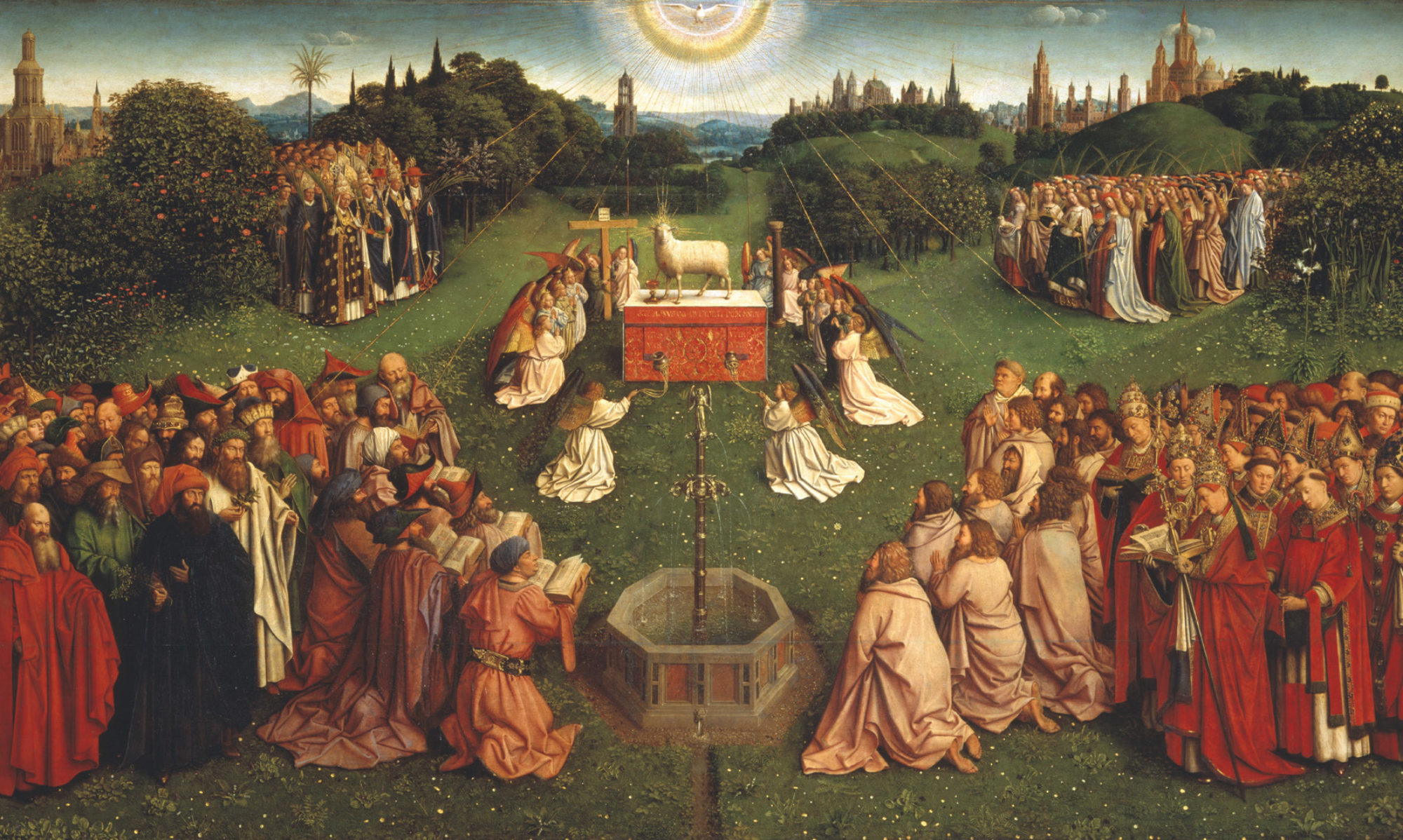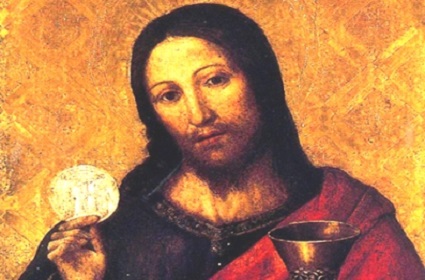Every now and again one encounters the objection that the Eucharist cannot be the true flesh and blood of Jesus Christ because to eat it would constitute cannibalism. This is an interesting argument, and if the person you are talking with actually accuses Catholics of practicing cannibalism, then it demonstrates that he at least understands the seriousness with which we say that Jesus is truly present in the Blessed Sacrament, even if he does get the particulars wrong; at least he understands that we take the phrase “Body and Blood” seriously.
So, what do we respond when somebody attacks the Holy Eucharist on the ground that to eat the flesh and drink the blood of Jesus would be cannibalism?
Let us begin with the Old Testament. Leviticus 17:14 seems to categorically prohibit the eating of flesh with the blood or the drinking of the blood of any creature:
For the life of all flesh is in the blood. Therefore I said to the children of Israel: you shall not eat the blood of any flesh at all, because the life of the flesh is in the blood, and whosoever eateth it, shall be cut off.(anima enim omnis carnis in sanguine est unde dixi filiis Israhel sanguinem universae carnis non comedetis quia anima carnis in sanguine est et quicumque comederit illum interibit)
If this commandment applies (so runs the argument) the Eucharist cannot truly be the Body and Blood of our Lord, for to consume it would be against what God commanded in Leviticus, and thus God is made to contradict Himself.
There are two explanations to this dilemma, one satisfactory, one sufficient but less so. We shall look at the less satisfactory of the two defenses to this charge first.
Explanation 1: “Guilty as Charged”
This defense I originally heard from Dr. Scott Hahn (I do not recall where exactly I heard him give this explanation, but I believe it was on a radio call-in show). According to Dr. Hahn, the response to the charge of cannibalism is “Guilty as charged!” If I am remembering it correctly, Hahn admits that eating flesh and blood is cannibalism, affirms that we eat the Body and Blood of our Lord, and therefore concludes that the Eucharist truly is cannibalism. What else could it be if the Eucharist is truly the Body and Blood of our Lord? Cannibalism means eating human flesh and drinking human blood, which the Eucharist is: consuming the flesh and blood of a Divine Human. So, according to this argument, it is a type of cannibalism.
What about the fact that Leviticus specifically says that whoever does this shall be “cut off” from God’s covenant? If it is cannibalism, then are we not “cut off”?
Dr. Hahn says that by partaking of the flesh and blood of Christ we do, in fact, want to “cut” ourselves off from the Old Covenant. In accepting the flesh and blood of the God-Man, we implicitly renounce adherence to the Old Covenant, which forbade cannibalism. Christ took upon Himself the curse of the Old Covenant, and we too must accept that “cutting off” from the Old Covenant to be truly accepted into the New. Therefore, we take upon ourselves the reprobation of the Old Covenant which was reserved to those who ate and drank blood by doing the very thing which God prohibited under the Old Law. This we accomplish when we partake of our Lord’s sacrifice by receiving His true Body and Blood in the Eucharist. This act definitively “cuts us off” from the Old Covenant and incorporates us into the New.
This explanation is serviceable, but it is novel way of understanding the question.
Explanation 2: The Form of Flesh
This brings us to our second defense, which begins with the definition of what cannibalism entails.
According to our second defense, cannibalism is defined as eating the flesh of one’s own species under the form of flesh. What do I mean “under the form of flesh?” Suppose I eat a man—part of his leg or arm— then I am committing cannibalism: I am eating human flesh under the form of flesh. This is what we usually think of when we speak of cannibalism.
But now let us posit another scenario: Say that a shark eats a man. The unfortunate fellow is digested and becomes part of the shark. Then, a week later, some fishermen catch the shark, kills it, and turn it into shark steaks. Then the fishermen eat the shark. Are they committing cannibalism? After all, they ate the shark who ate the man, implicitly eating the man who was eaten by the shark. Is this cannibalism?
This is not considered cannibalism. But why not? Aren’t we consuming human flesh when we eat the shark which has eaten the man? Yes, but not under the form of flesh. The flesh of the man has been broken down and is not longer under that form anymore. Therefore, though in a way it can be said that we are eating human flesh when we eat the shark, we are certainly not committing cannibalism. We are eating human flesh in a way, but it is no longer under the form of flesh.
Similarly, in the Eucharist, we eat the flesh and blood of Jesus Christ under the forms of bread and wine. No flesh is consumed in the form of flesh (i.e., true flesh and blood is eaten, but not in a carnal sense). Therefore, flesh and blood are truly consumed, but there is no cannibalism.
It could be objected that the argument of flesh under the form of flesh only applies when a third party is present to negate the act of cannibalism: the shark eats the human flesh, and then someone eats the shark. However in the Eucharist, bread and wine become flesh and blood, those participating eat it directly (without the intermediary of a third party, a “shark” who removes us one degree from cannibalism).
But in the Eucharist, there is a “third party”, so to speak: the accidental properties of the bread and wine, which remain so that the flesh is not consumed under the form of flesh, but under the sacramental signs of bread and wine. The Body and Blood of Christ is truly present, but God allows the accidental properties of bread and wine to remain. The presence of these accidental properties are what allows us to say that the Eucharist is the Body and Blood of our Lord under the forms of bread and wine and not under the form of flesh. So, we do not deny that flesh is immediately and directly consumed, but we do deny that it is flesh under the form of flesh; we consume it under the sacramental signs of bread and wine, whose accidental properties remain.
Thus, the argument that the Eucharist is cannibalism does not hold weight.
Phillip Campbell, “Is the Eucharist Cannibalism?” Unam Sanctam Catholicam, July 21, 2012. Available online at https://unamsanctamcatholicam.com/2022/10/is-the-eucharist-cannibalism

